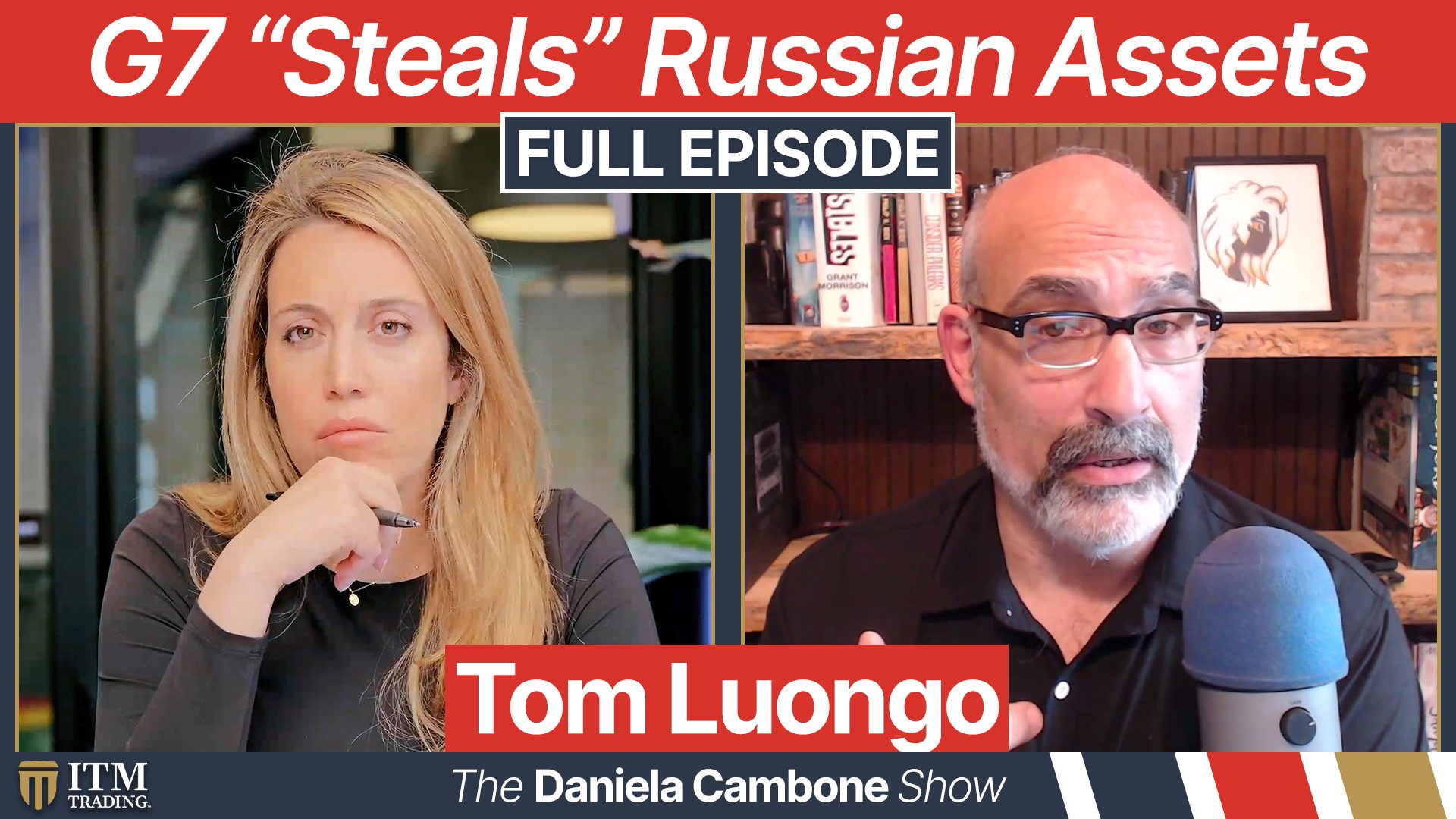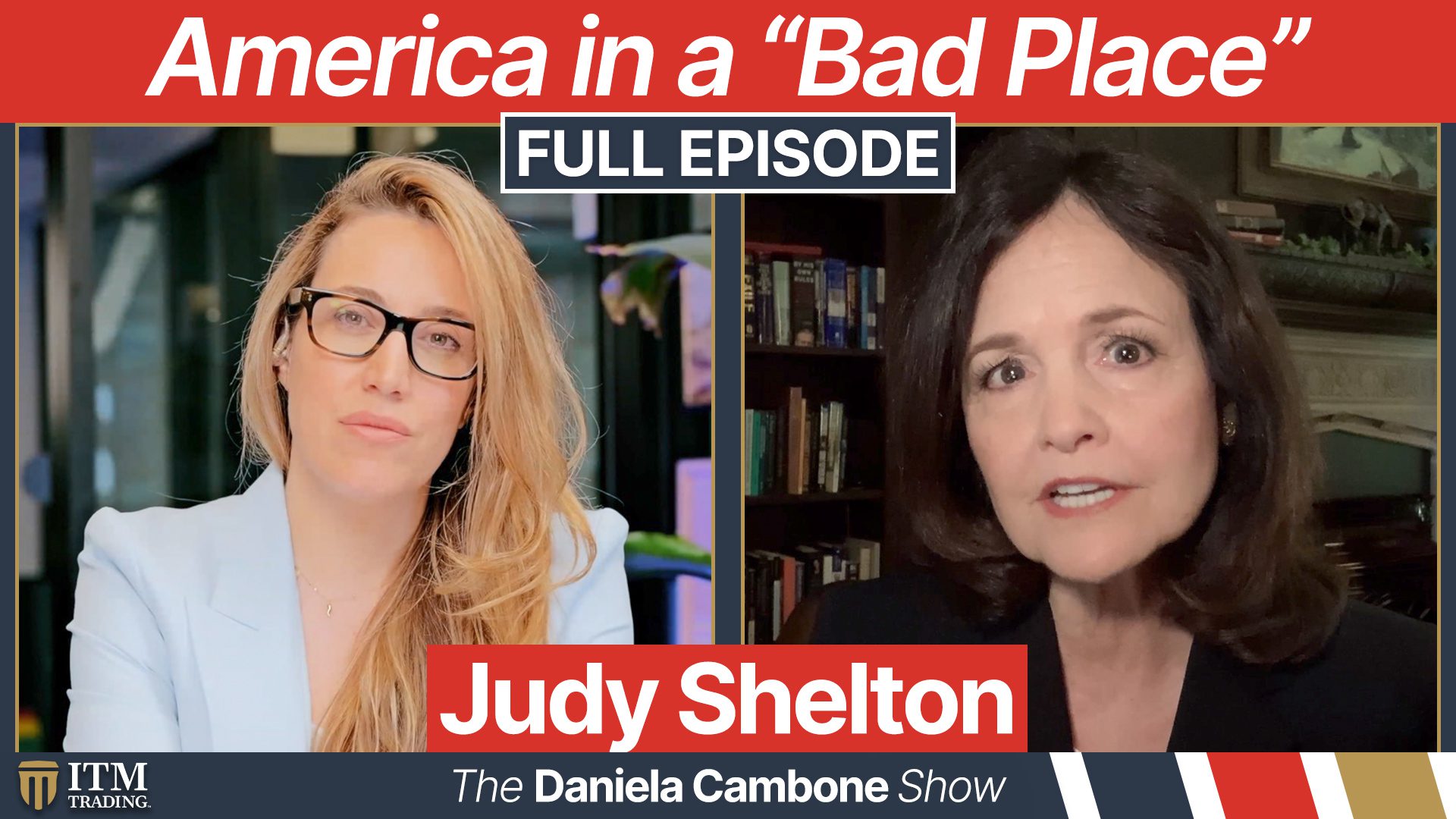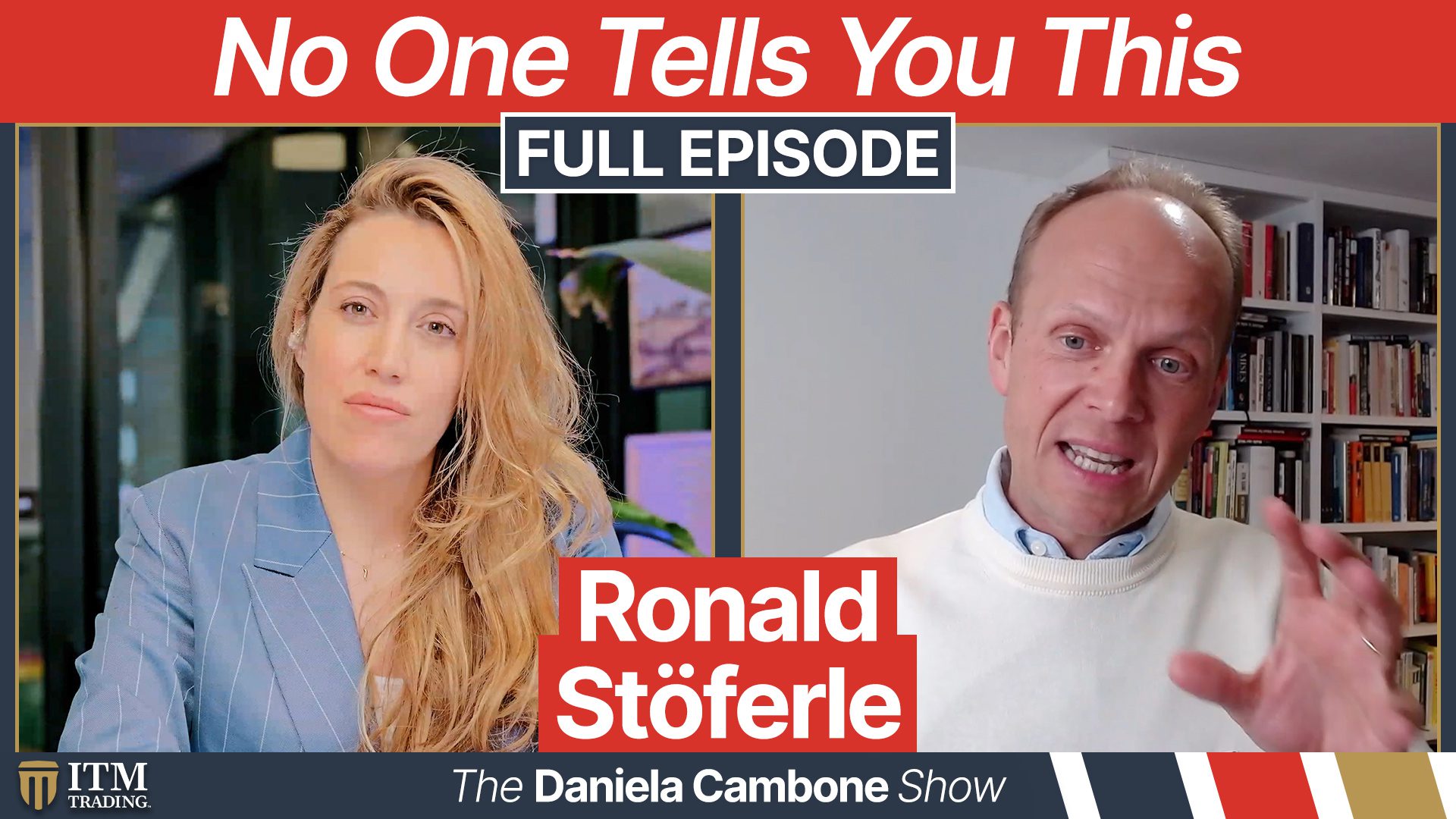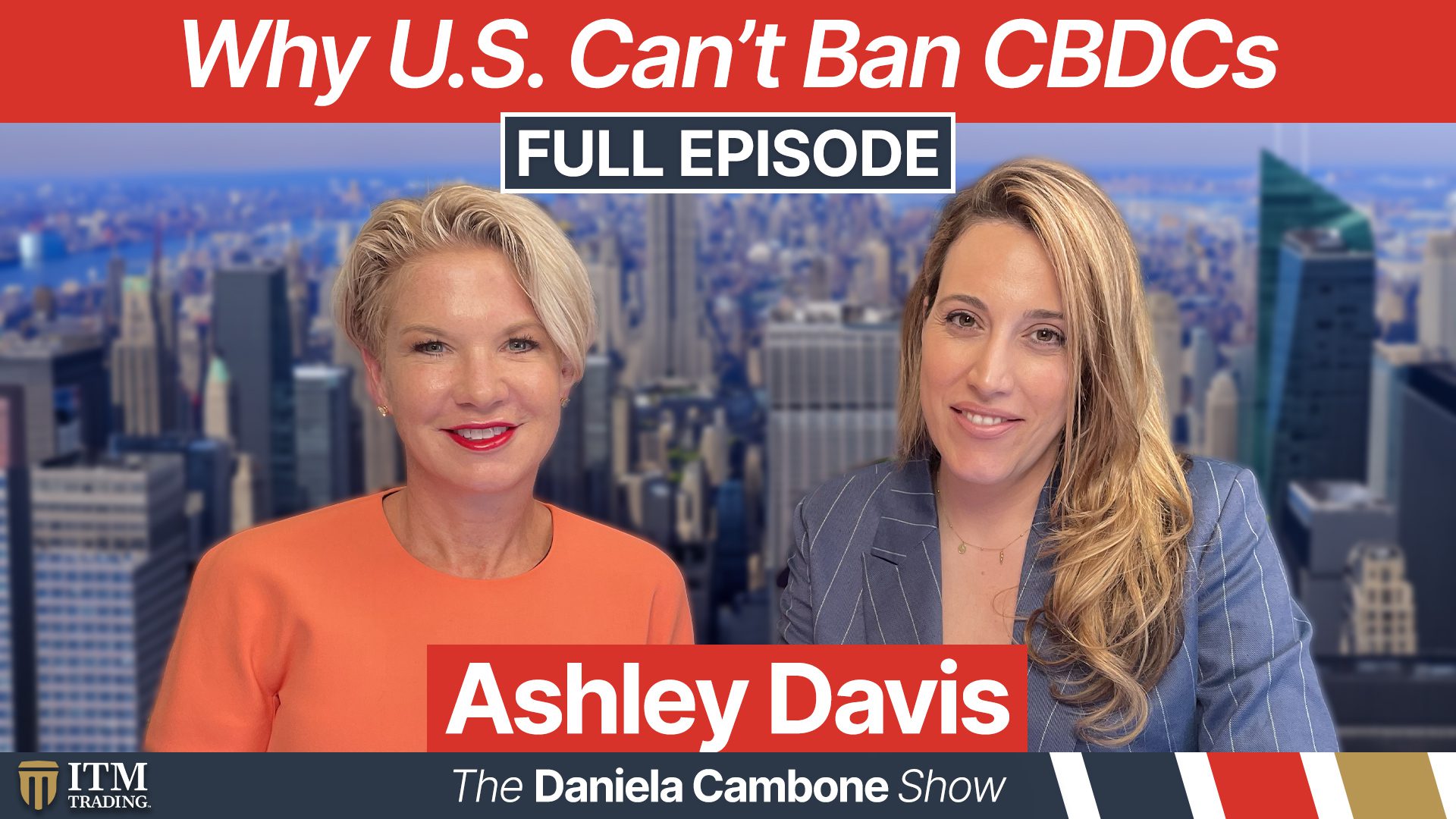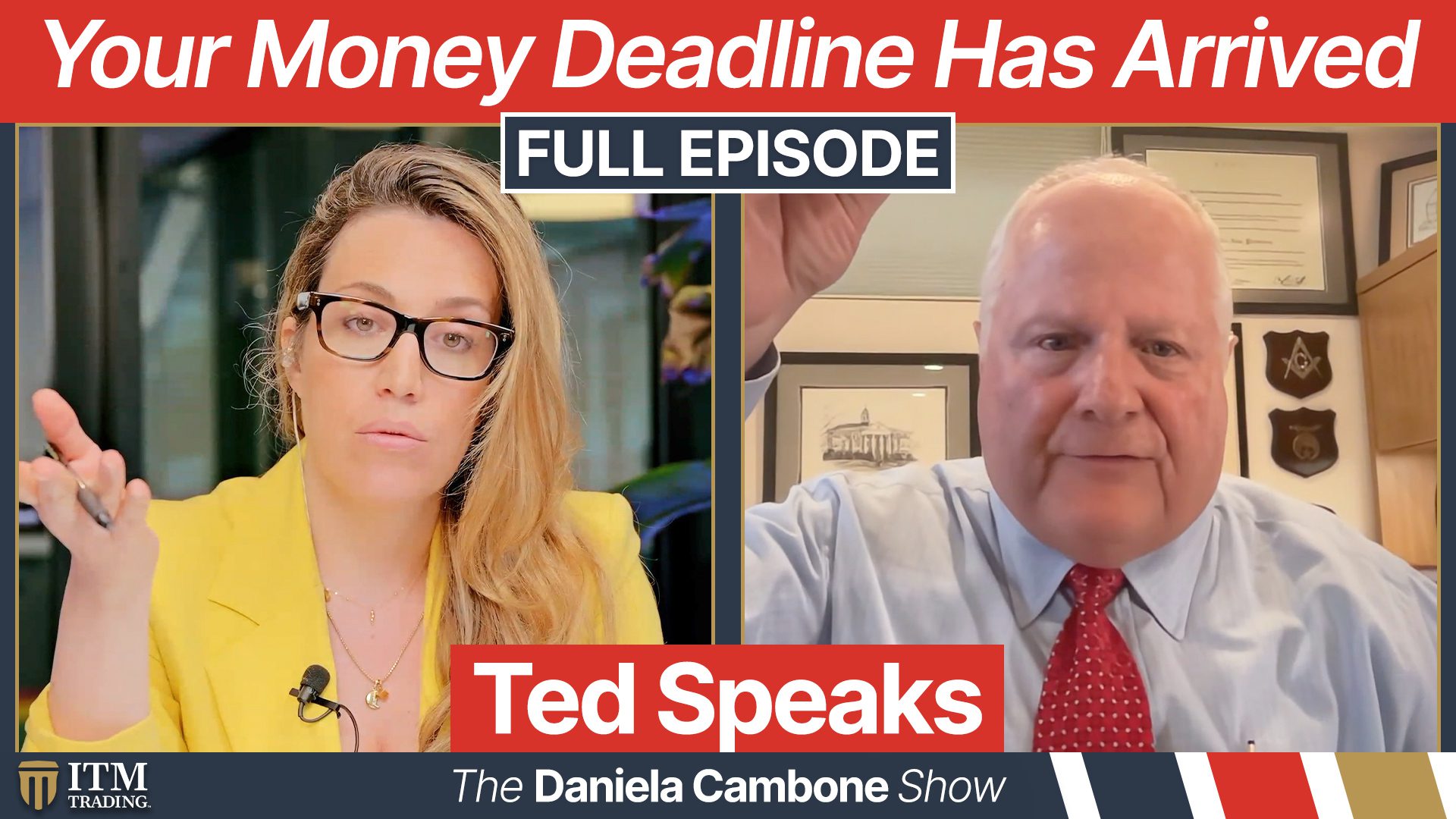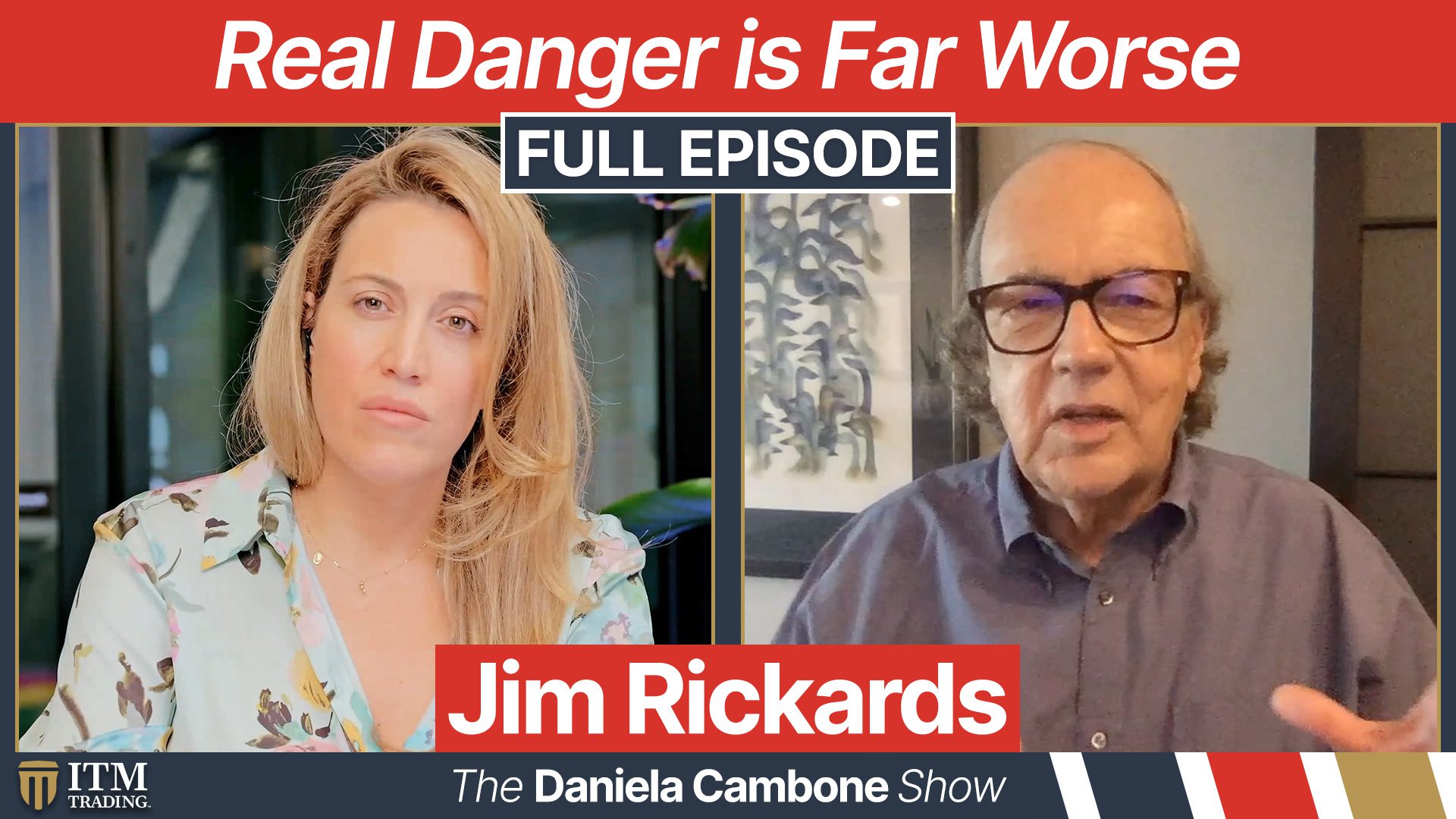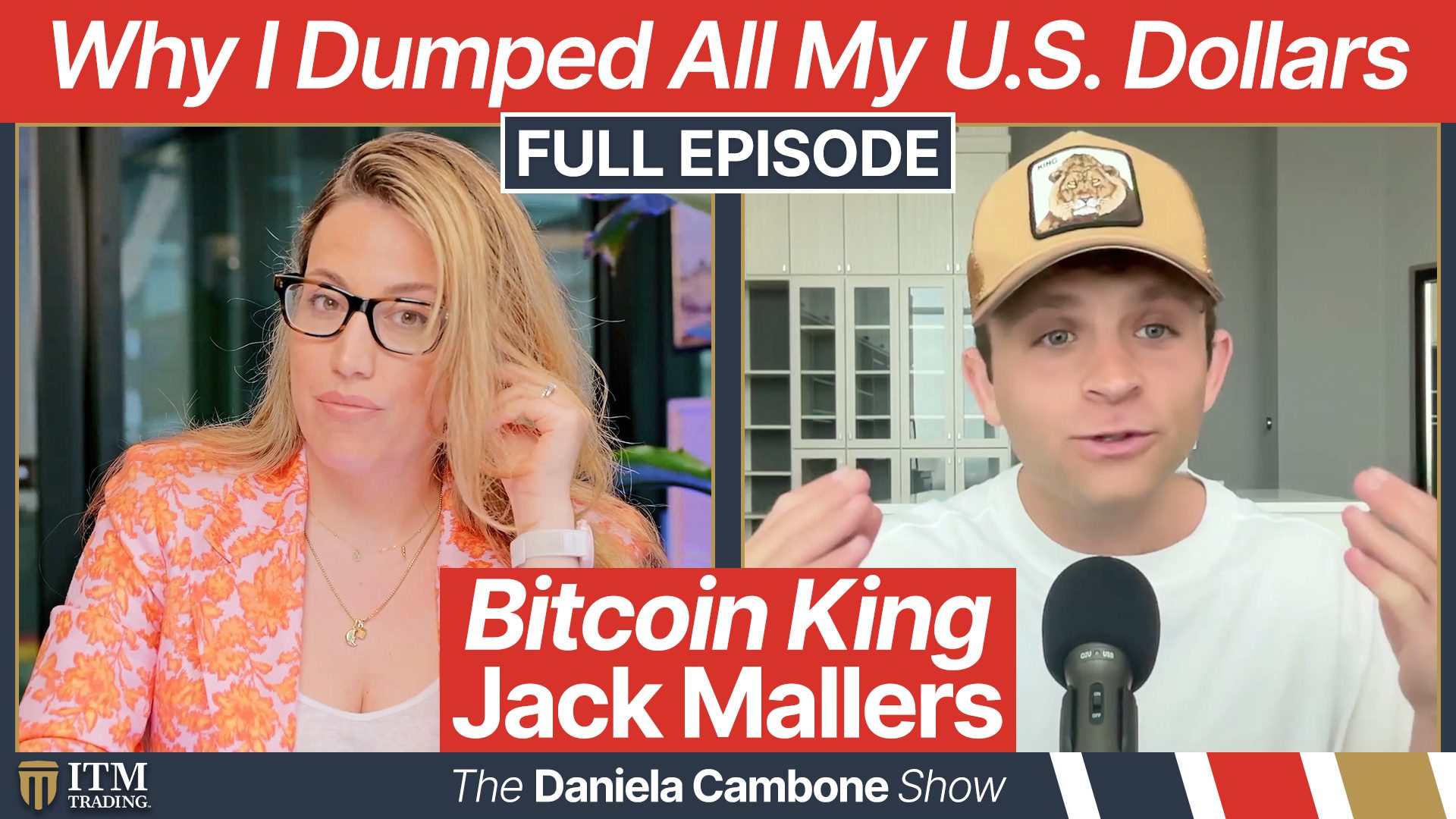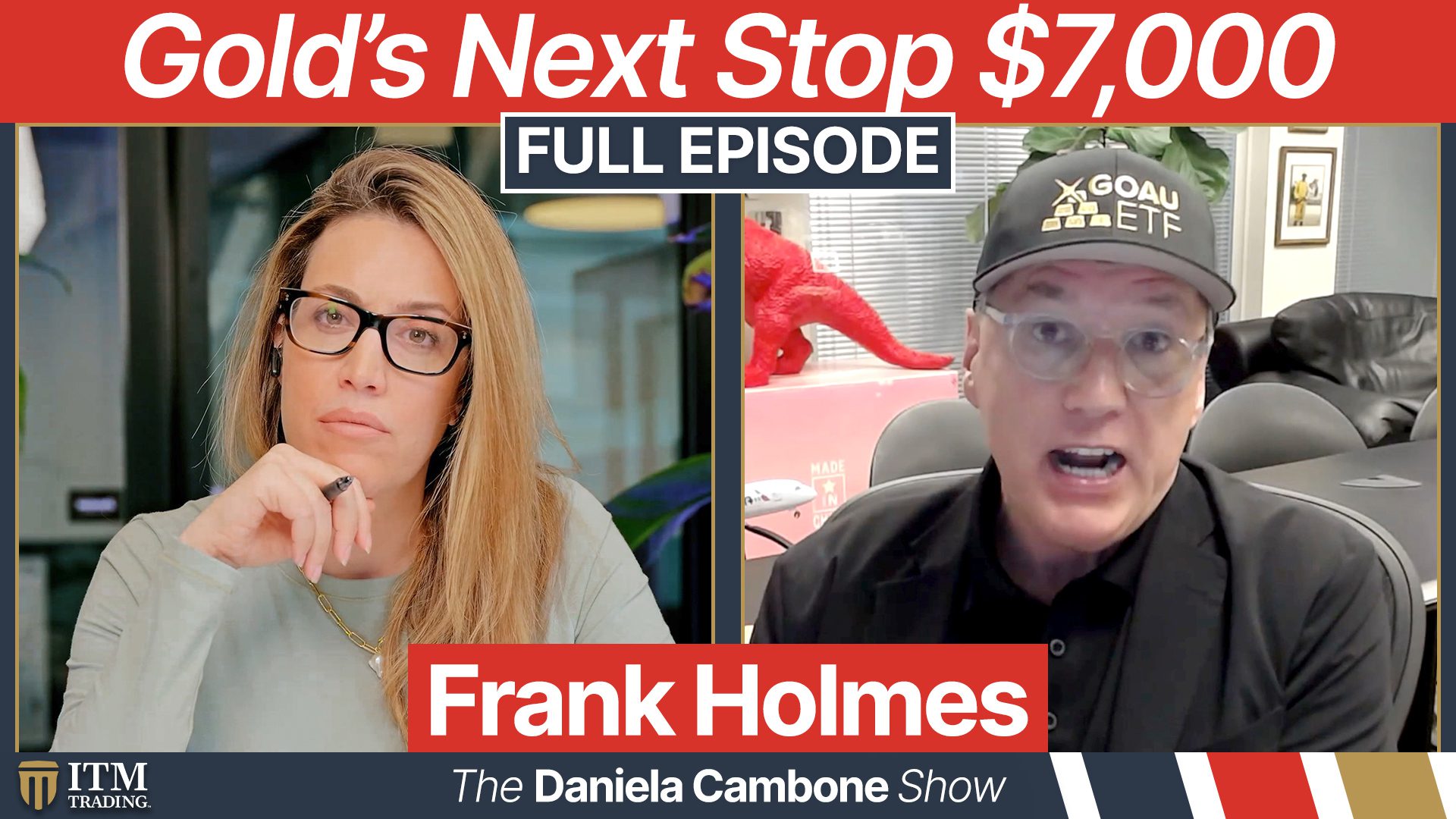Secret Banking Crisis Looms; What the Fed Doesn’t Want You to Know – Insider Nomi Prins
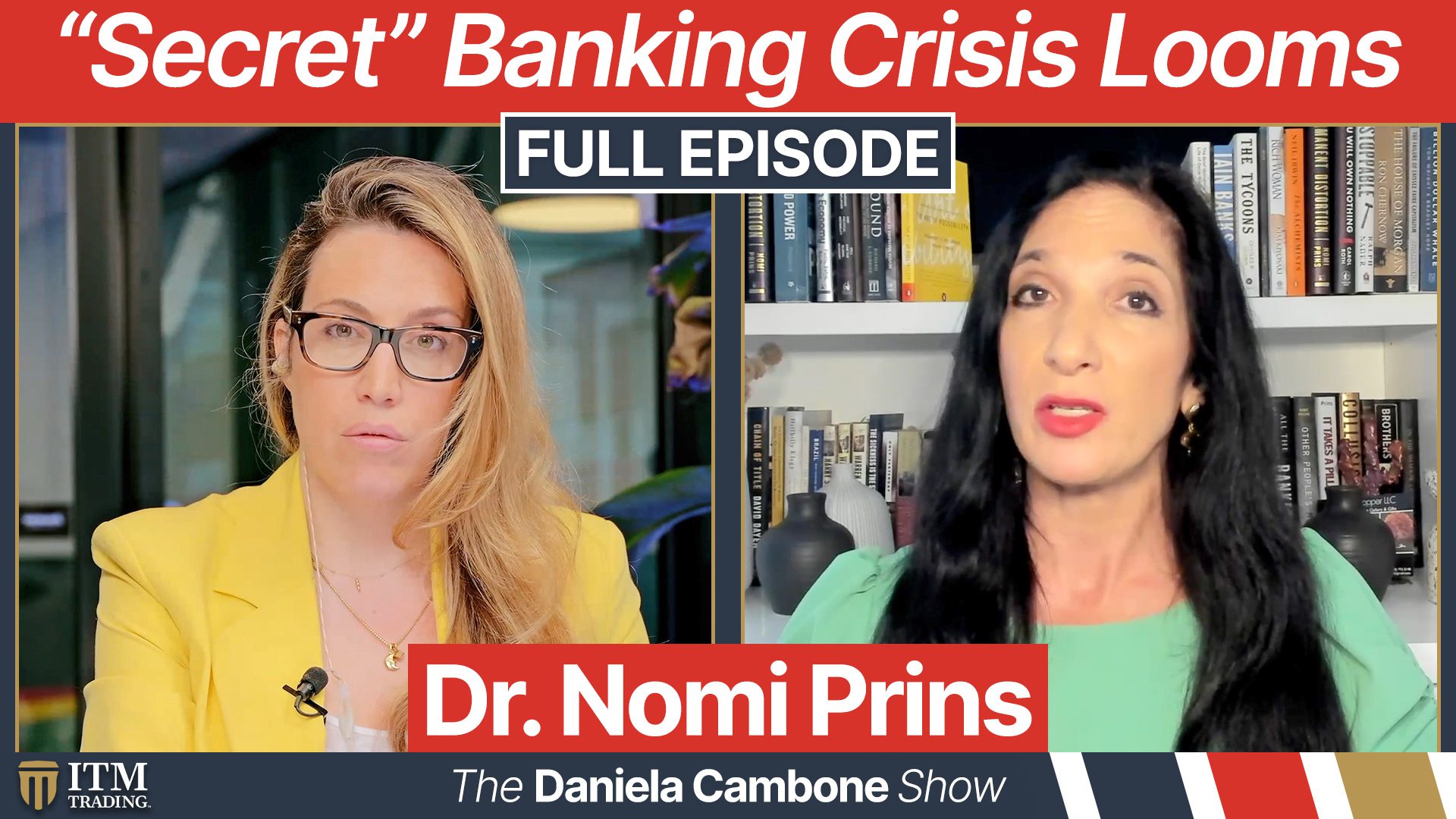
“The Fed needs to understand its boundaries and stop pretending it’s like inflation Superman,” says Dr. Nomi Prins, geopolitical finance expert and bestselling author. She explains that the Fed has no ability to impact real inflation — the increased prices that individuals and companies face daily. She also discusses how the Fed is operating in conjunction with big banks. Banks remit their excess earnings to the Fed, which then passes those earnings to the Treasury Department. However, because the banks haven’t reported enough of their excess earnings, the Fed is operating at a loss. She warns that if these banks collapse, we can expect more quantitative easing and a return to zero interest rates.
CHAPTERS:
00:00 Fed cut rates
3:00 Five Flashpoints for Q-3
6:19 Credit cards debt
9:11 U.S.-China tariffs
12:11 Geopolitics moves
13:32 Inflation
15:29 Commodity prices
19:20 Banking crisis
TRANSCRIPT FROM VIDEO:
00:06
Hi everyone, Daniela Cambone here for ITM Trading. Before we start today’s interview, I just wanted to take a quick moment to remind you all that if you have not reached out to one of my colleagues at ITM Trading, I strongly urge you book a calendly appointment. You can do so in the description below of this video. It’s basically a calendar appointment. You choose a day, a time that suits you.
00:31
And one of my wonderful colleagues will walk you through building a strategy based around gold and silver. It’s a free session. It’s super informative. You can also talk about a lot of the content we cover in the interviews. And if you have any questions, they are there for you. That’s all I wanted to say. Let’s get to today’s interview. As Fed officials are discussing policy and the economy this Monday morning, the question just lingers. Should the Fed?
01:01
relax its 2% inflation goal and just cut interest rates. This is gonna be my question for my guest today. Please welcome back bestselling author, Dr. Nomi Prins. You know her of permanent distortion. She’s also going to be a guest at Rick Rule’s upcoming symposium. We’ll talk that and more, but first, welcome, welcome, welcome Nomi. Thank you so much, Daniela. As always, such a pleasure to be speaking with you.
01:30
So good to be catching up with you. So here’s my big question for you today. Should the Fed just give up on the 2% goal and cut rates? Excellent question. Yes, because the Fed has literally no ability to impact real inflation. And when I say real inflation, I mean supply side, I mean exogenous events. I mean all of the prices that have either risen or stayed the same or just moved completely independent.
02:00
of the fact that the Fed has raised rates and kept them at these rates for so long. So the Fed has had an inability to understand its capacity to actually impact the real inflation that people and companies and actually governments feel every day around the world. And in fact, they have made the cost of carrying debt, which is enormous and a whole completely separate issue, so exorbitant that
02:29
the government and people can’t even pay for things they need to do to grow the economy or to grow their own personal financial situations. And the biggest thing therefore is yes, but the Fed needs to understand its boundaries and not continue to pretend that it’s like inflation Superman. I say Superman meaning Jerome Powell in the absence of the ability to impact prices.
02:58
So well so well said and That kind of leads me to my next point because you’ve just put out your latest five flash points For q3 you you do these flash points for every quarter and there are five things that we need to be paying attention to and You say the threat of higher for longer will just grow here That’s right, because whether or not the Fed cuts rates
03:27
I don’t think they will at their next meeting. I think there is a chance that they will in July 25 basis points. And only because of two things. One is the Fed has already indicated it’s going accommodative with respect to, or more so with respect to its own balance sheet, right? So it has, it said in its last FOMC meeting that it will reduce the tapering. It has never sold treasury bonds, but it will reduce the tapering of those bonds from $60 billion a month to $25 billion a month. What that actually says is,
03:55
They are concerned about liquidity, number one. Number two, our economic growth has slowed down. At 1.6% growth with inflation over 2% or 3%, we’re actually shrinking as an economy. So they have two data point reasons to basically back up. But however, we have had rates higher for longer and we will have them near these levels, whether or not the Fed cuts by one or two or three times for a total of 75 basis points, which I believe they will do between now and the end of the year.
04:24
It’s still higher for longer. And what that means is it’s causing things to break. It’s causing the cost of our debt for the government to increase to higher than its defense budget in terms of interest rate payments per year or Medicare. Not the same, not both of those two things at the same time, but any bucket, it’s a large bucket of our budget. It’s a large headache.
04:46
for people who are carrying credit card balances, which are now the highest that they’ve ever been at record levels, for people who are carrying new mortgages, which are also high relative to the last 20 years, for people that are trying to as small businesses borrow money in order to grow or to invest in their own capacity, in their own entrepreneurship, in their own establishments. All of these things have tightened. And one of the things that I show on the flash points is one of the first points, is that the availability of funds.
05:12
of lending for the average person. And I don’t mean even in credit card debt, because that is extreme and that is very high interest rate because of where we are at with rates, but just to grow small businesses, that lending has shrunk and it’s more expensive when it can be achieved. And that is a problem, that hurts the economy. So there’s a lot of things that are about to break, also commercial real estate offices, all sorts of things that we see where the value.
05:41
of underlying collateral properties not keep up with the payments that companies are in, the leases that they have signed. And we have millions, actually up to hundreds of billions of dollars coming due this year in leases that are not gonna renew. And that’s gonna have a downward impact on not just the commercial space and the value of that space, but our company’s ability to have a footprint and to grow. And so there’s a lot of things that are at that sort of breaking point in the face of
06:11
a lower economic growth to begin with. This is the problem that we are facing because of how the Fed has conducted its policies. You bring up such a good point, and it’s this disconnect, and you bring up the point of the credit card debt. And I was just at a conference in Montreal on a panel with Lawrence Leopard, and I love how he said, you know, the restaurants are still packed, right? You can’t get a reservation at any of these fancy restaurants here in New York City.
06:40
the airline are selling tickets. So there’s such a disconnect because you look at the credit card debt and he says it’s just people whistling past the graveyard is the way he sums it up. So when do you think this just breaks that reality really hits? Because to me, Nomi, it just seems there’s such a disconnect.
07:08
Right, so what’s happening with credit card debt, with the outstanding business loans that are out there, with these commercial spaces that aren’t basically producing income, all of this is in the same ecosystem. And so what happens is it doesn’t take all of them to happen at once for them to be contingent on each other. So people, yes, are continuing to push credit card debt past the limits of a comfortability. And part of that is because, yes, there is that
07:37
plane ticket to buy around the corner. We do have summer coming up. We are going to see probably record airline travel. It was creeping up last year post COVID and we’ll probably all the airlines are expecting it to based on their bookings, be it records this year. All of this costs money. And yes, there’s a level at which, so the wealthiest line of society has enough cash or liquidity to continue to pay its debts potentially, but there’s also a lot of pushing the can down the road here with debt.
08:05
And it’s the same thing with national debt at almost $35 trillion. There’s a lot of pushing the can down the road. So when does that break? Not necessarily all at once, but what happens is any of those pieces that start to go. And we are starting to see delinquencies creep up for credit cards. We are seeing delinquencies and defaults creep up for one to four family type housing or sort of small apartment buildings, people not being able to pay their rents. We are seeing all of those things incrementally creep up. So this is sort of this.
08:33
idea of the frog inside the pot, you know, you’re turning up the water a little, a little, a little, it’s not noticing it’s boiling. We are actually in that phase right now. So it’s not necessarily going to look like a massive crash. It can look like a bunch of banks failing because I still think there’s a lot of banks that are not out of the woods yet because of deposits they’ve lost, commercial and other loans that are on their books that are falling into delinquency or more defaults. And we are going to see more medium or small size bank failures or consolidations.
09:02
All of this can happen at the same time and it all indicates a kind of Fraying inside and outside of the lines of the economy I want to jump To uh your third flashpoint Uh, which is the u.s versus china And news of the white house hitting china with sweeping tariffs on chinese made evs solar panels batteries Another size sent a warning shot
09:29
You said the estimated 18 billion in tariffs further increased tensions between the two south superpowers now In my inner circle, this was a move highly criticized that the u.s. Did this what’s your take on this and um What are the dangers of any? Yeah, it’s very interesting. My first take is obviously um, this kind of a move is a is a political move Um because it’s it’s really not an economic move in any sort of long-term sense. Why?
09:59
Well, on the face of it politically, it looks like, all right, we’re going to create these additional tariffs, which are, by the way, not too dissimilar from the tariffs that the Trump administration had created. So not to get political, political, but this is something that is sort of Washington internal with respect to its competition with China. And it’s basically saying, look, on these elements, we don’t, we’re going to basically.
10:22
make it more prohibitive to import from you. And therefore we’re basically taking ourselves off as a buyer for some of your materials off the table. And China of course has retaliated as they did a number of years ago when similar sorts of tariffs in anything from the time of steel, aluminum, so forth, some of the materials as well as some of the finished parts or at least mid production parts were also tariffed. And this is just extending a lot of that. It creates more tensions obviously because now China has to
10:52
basically step up and it also creates higher prices for the very people and companies that are supposedly being held by these tariffs. For example, and we saw this last time we’ll see it again with steel, a very commonly used material. When there is a tariff on certain imports, it impacts the entire market. We are in a global codependent economic system. When you raise tariffs, it actually increases prices. So it has the opposite impact.
11:20
from what it might have done decades ago when it actually helped to work in terms of reshaping how trading partners sort of worked with each other. This is a situation where we actually are a major trading partner of China. They are a major trading partner of us and increasing these tariffs will increase costs on the actual EV parts, on the battery parts. And in particular, you know, so the critical elements, which that part
11:44
I think the US is starting to realize that it needs to move outside of its China supply chain with respect to that, open more of the United States, Canada, Australia, South America, and so forth to actually have its own sort of initial supplies on that. But in general, tariffs in this magnitude are basically more of a political move than a positive move that will have economic benefits for actually either country.
12:11
Yeah, and I just think the timing of it already at the height of geopolitical tensions to add this on top of it, Nomi. I know that that’s exactly right. That’s and that’s why this is very much a political geopolitical move is basically saying, look, we can and we will. You know, solar panels have been under tariff, for example, for for a number of years, even actually before, to an extent, to a smaller amount less less focus on it before the Trump administration’s
12:40
tariffs and before the Biden administration’s amplified tariffs. These are things that, yes, we are trying to, on one hand, jumpstart our own sort of ecosystem on this, but on the other hand, it’s very political. We’re not that far away from the election. China is a common sort of topic for being an enemy of the United States, particularly more so as we go to any election.
13:07
literally any election in the 2000s. China has been the sort of harbinger of United States geopolitical sort of hammering. And this is no different, even though again, we continue to be major trading problems, partners with each other. Your fifth point, inflation, inflation, inflation ties into our first part here. You say, despite many talking heads taking victory laps,
13:37
The truth is, and it’s clear to see, the inflation battle is far from over. Yeah, the inflation battle is actually just an inflation new normal period. And that’s why even when the Fed says, all right, well, it’s come down, but it’s not come down enough, which is basically what it’s been saying the last year almost, it doesn’t have that much meaning because the reality is we are in
14:05
Again, a codependent economic system, and there are supply chain disruptions. There are tensions in the Middle East, there are tension with respect to Russia and Ukraine. Those amplify at any given time, oil prices, certain natural resource prices. We have climate situations or higher aridity throughout the world, which is impacting the cost of wheat, the cost of corn, the cost of rice. None of those things can be controlled by the Federal Reserve.
14:34
And a lot of other offshoots of our food and our energy having high prices not being controllable by the Fed. You throw in what we were talking at the beginning of the conversation where credit card debt, all of that is high, yet people are still taking out their credit cards, particularly in the United States and buying at these restaurants and buying these plane tickets. That actually amplifies inflation as well, except that the cost of doing that in terms of the cost of carrying that debt becomes higher and higher. So you have debt inflation.
15:03
and debt servicing price inflation. So we are in actually a new period where inflation itself for so many reasons cannot be controlled by monetary policy and will only continue to be controlled by a series of geopolitical tensions and actual supply and demand side issues that I think we’re just in a period where it’s just going to be around.
15:34
with the run-up in gold price, I want to get your thoughts on, were you shocked at how oil’s reaction immediately after the death of the Iranian president didn’t really move much? What can we expect from the commodity space here as geopolitical tensions keep rising? Right. Well, and again, into our election, oftentimes we will see international geopolitical tensions which already exist actually rise that much more.
16:02
The concept is that the United States is sort of busy watching its own election. And so even though certain decisions are made on a political basis, they’re kind of preoccupied and so a lot of other things happen in the world around the same time. I think oil prices are going to, they didn’t react as much to that as you say. With the Iranian president, I do think oil prices will rise into the summer. Again, what we’re looking at, what will be another set of records broken.
16:27
in terms of heat, I think that will also impact natural gas prices. Last year we had more capacity on natural gas and some of that capacity has run down. So I see those being tightened as well, again, both from geopolitical as well as environmental reasons. From the standpoint of gold, gold is interesting because when we talked about this last time, we spoke that gold would get to, or I said, 2400 and then up to 3000 by the end of the year. We were already past, not today, but we did pass sort of intraday.
16:54
at that 2400 level and why. A couple reasons, one goes back to that. The Chinese, for example, have not been buying as many of our treasuries as they have had in the past. In fact, they’re buying a significantly lower portion of our treasuries because we have so much debt than they have ever really bought before. And they are instead buying gold. India’s buying gold, Turkey’s buying gold. You have basically a situation where central banks currently are only 15 to 20% of the available capacity of gold buyers. So they have the potential.
17:23
to continue to buy up that gold. But the other thing that’s very interesting about gold that has happened, and it started last year with the banking crisis last March, is that the retail sector has turned to look at gold, not just the people that were following it for years, or that had it already in their investment portfolios, or in their family legacy portfolios, but more and more are coming in. When you have Costco selling gold bars, when you have more ETFs available, they’re actually linked to not the future price of gold, but the actual solidity of gold being stored somewhere.
17:51
where you have more verification online in terms of buying a different gold brokers, gold where you can actually trace and store it and have it connected to you. And you have also the ability to buy more gold coins if you can’t afford gold bars, which is a thing a lot of people can’t. So there’s a lot of other avenues and sort of discussion about gold on the retail side, which is also.
18:13
help to keep these prices up. So you’ve got these two things going on. You’ve got debt, inflation, which is connected. And then you have the retail side outside of the central bank side also continuing to purchase gold. And the same thing’s happened with silver. We’ve seen a massive increase in the price of silver. Silver is still very level relative to gold in the initial run-up. So as gold was starting to move up, past 1920 to 2000 to 21, 2200, silver planet didn’t really move that much, but silver is really interesting because A, it has that old historic.
18:42
idea of value preservation in inflationary terms and also that physical ability to store it, to use it, et cetera, it has tremendous use value in the energy transformation space. And so there’s two, there’s a use value and there’s an inflation well preservation value that silver, we have seen continue to rise up to meek gold. We’ve also seen copper do that, not because it has that same store value, but because there are other economies that are building things and there is an energy transformation going on and it does require.
19:11
Basically, the re-chiguring of many, many copper wiring. So there’s a lot of things going on there. And I think that’s going to continue. There is so much indeed going on. And I just want to pick up and maybe wrap with the looming banking crisis, because as you say, we shouldn’t be surprised if we see more closures. But what tools do you think the Fed would they use?
19:39
to prevent or stop it or are they looking at it? Are they concerned? What are your thoughts here? Well, they’re not talking about it. In terms of looking at, or at least publicly, not at the Q&A, what they’re doing is internally, they are discussing that that is a big reason why they reduce the tapering policy that they said they were gonna keep in place throughout the whole sort of rate higher for longer period in a way, and they reduced that from 60 billion.
20:07
runoff to 25 billion in runoff a month. That’s one way to say, look, we are seeing some form of a liquidity crisis. In addition, the Fed is operating at a loss, right? It is operating at the first loss that it has been operating at basically in its history. It’s lost, it’s been going on since the end of last year, but it’s been increasing. And why is that? It’s because the Fed operates in conjunction with these big banks. The big banks basically…
20:33
have to remit their excess earnings to the Fed. The Fed remits those excess earnings to the Treasury Department. It’s sort of like an inside baseball thing, but it’s been, they’ve not been able to, not because the banks haven’t actually reported anyway, enough of their excess earnings to make that equation positive. So the Fed’s operating a loss. It knows that. It knows that the federal budgets come in and a record again. It knows that record high debt payments don’t actually help economic growth on any level, however you measure it.
21:02
And it doesn’t talk about that stuff because it’s so focused on inflation and the employment situation. But if these banks actually collapse, if we get another run like we did last March, we actually had another couple of banks also collapse towards the end of the year. They just didn’t pay as much attention to them. We will get a situation where they will move towards more QE, where you’re not going to see 25 billion roll off instead of 60 billion of Treasuries. You’re going to see zero.
21:29
And then you’re going to see a pump up in QE. That’s exactly what happened in the wake of the Silicon Valley First Republic signature collapses, but they happened to have occurred at the same time. So it was more obvious that the Fed actually grew its balance sheet for a minute before they started to shrink it again, even as they were in a process of letting bonds roll off from a policy perspective. These are the things they’re going to do. We would see more QE. We might see those rate cuts happen a bit more.
21:57
quickly or in one chunk if we did see that happen, if we saw a bunch of banks collapse at the same time. But QA is gonna be the first go-to policy. And then I think we would see rate cuts. They would pivot, they would actively use those tools immediately you’re saying, Nomi? Yeah, yeah, I mean, yes, because that’s, we’ve seen that. We’ve seen evidence of even when they were in a rate hiking, it’s the last March, we were in a rate hiking, QT monetary policy.
22:27
and they still increase their balance sheet by $300 billion. I mean, that’s nothing in today’s $7.4 trillion balance sheet world, but it was going up instead of going down, and that is because those banks all collapsed at the same time, and they did that literally in a couple of days from signature going under. So it’s very possible that that’s the first tool that they go to. They don’t need a policy directive to do that pivot.
22:54
I think it’s really interesting that you say they’re not publicly talking about their fear of bank collapses, but they’re definitely planning and thinking about it. Yeah. You got to look at those actions on the liquidity side, on the QT side, so that there’s definitely at least some people within the Fed. I cannot say that it is Jerome Powell. There’s no actual evidence of that per se, but there are internal voices that do have concerns about it.
23:23
Dr. Nomi Prins, I can say it now. We’re both going to be at Rick Ruhl’s symposium in Boca Raton this July. So excited to be there with you in the blistering heat. Yeah, speaking of, I can’t wait. And I can’t wait to talk more about sort of these issues and the other assets, which will be the topic of my talk. And I look forward to where we’re at then.
23:50
around the world that have a real impact on investment portfolios that actually have opportunities in them and that are in that sort of divide in that between the natural resources of the real space relative to the financial sort of printing space. Exactly. Well, there is an incredible lineup of guests like Dr. Nomi Prins. I invite everyone to come out to Rick Rule’s show. We’ll have a link below in the description of this video if you want to sign up.
24:19
I believe there’s a live stream, but if you can come out and be with us in person, that’s even better. And that’s it for me, Dr. Nomi Prins. Always a pleasure. Thank you. Thank you. And get her book. It’s a great read, permanent distortion. And that’s it for me. You can sign up for more content. So you stay on top of it all danielacambone.com. See you soon. Thanks for watching.
SOURCES:
https://nomiprins.com/
